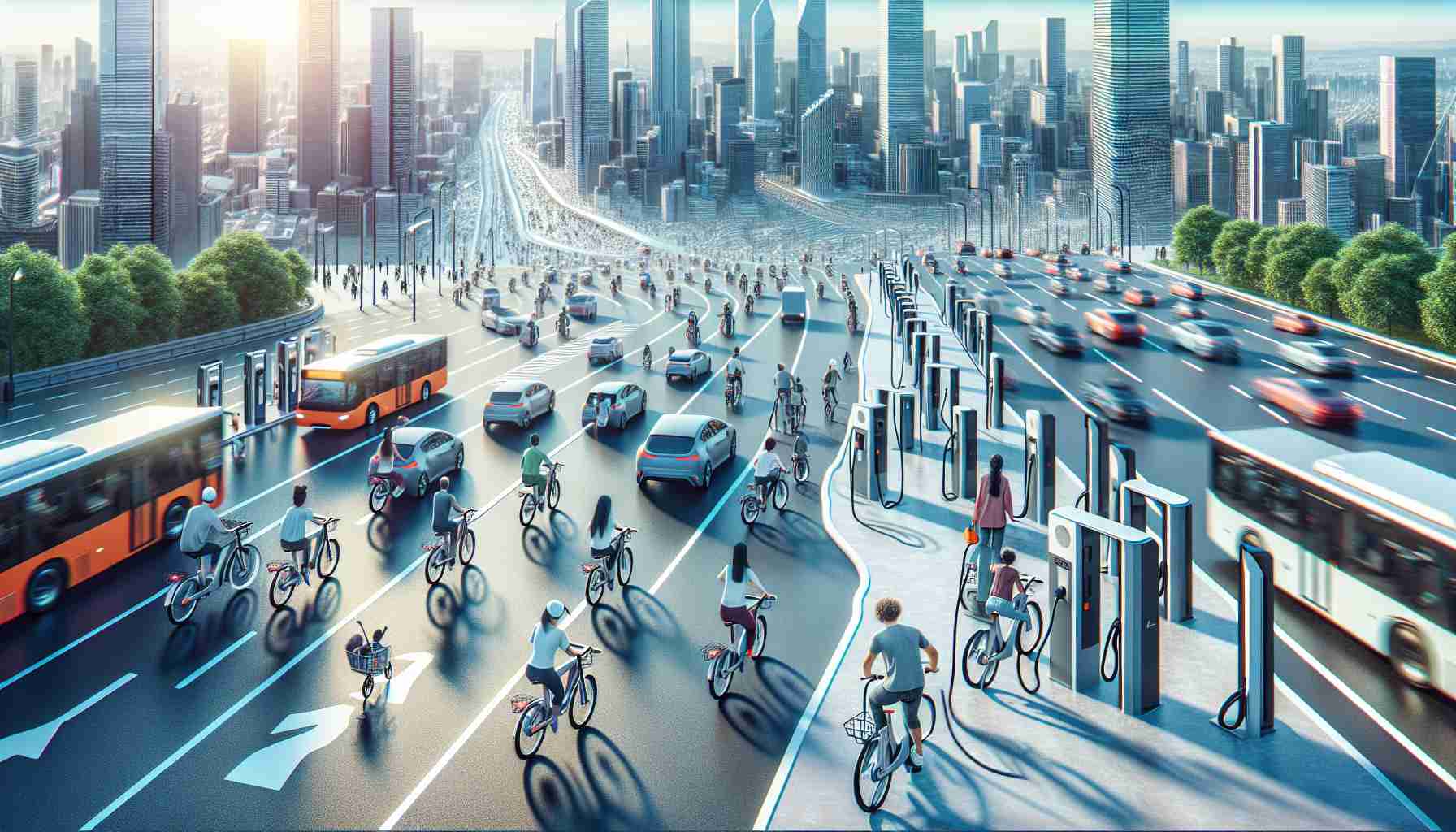A groundbreaking new study reveals the transformative potential of e-bikes in revolutionizing urban mobility and decarbonizing transport. E-bikes, also known as electrically-assisted bicycles, have witnessed an explosive surge in popularity in recent years, particularly in Europe. This study, conducted by researchers from the University of Lausanne, sheds light on the multifaceted impact of e-bikes on our daily lives and the transportation landscape.
The research highlights the rapid growth of e-bikes, with sales in the European Union reaching a staggering 5.1 million units from 2009 to 2021. Notably, Switzerland stands out as a global hotspot for e-bike adoption, displaying one of the highest market penetration rates in the world.
What is driving this phenomenal rise in e-bike enthusiasm? The study emphasizes the numerous benefits of e-bikes, positioning them as a greener and more sustainable alternative to traditional modes of transportation. With a low ecological footprint, e-bikes are far more environmentally friendly than cars, buses, and other motorized vehicles. Additionally, e-bikes promote physical activity, bridging the gap between sedentary lifestyles and active mobility. They provide a meaningful amount of exercise, offering health benefits to an increasingly sedentary population.
Contrary to popular perception, e-bikes are not only reserved for leisurely rides. The majority of e-bike users utilize them for practical purposes such as commuting and running errands. The motivations and barriers for e-bike usage align closely with those for conventional cycling.
Perhaps the most compelling aspect of the study is its examination of the modal shift induced by e-bikes. E-bikes are disrupting transportation norms, substituting cars, public transit, and even conventional bicycles. This transformative impact calls for a comprehensive understanding of how e-bikes fit within the transport system, individuals’ mobility biographies, and the organization of households.
As cities strive to reduce carbon emissions and enhance sustainable transportation, the study argues that e-bikes should be at the core of planning. By embracing e-bikes alongside other forms of active mobility and public transport, cities can accelerate decarbonization efforts and fundamentally transform the way people move within urban environments.
E-bikes are not just a passing fad; they hold the key to a greener, healthier, and more efficient future of urban mobility. As more individuals embrace e-bikes and experience their transformative benefits, cities must adapt their planning and infrastructure to harness the immense potential of this emerging transport revolution.
The e-bike industry has been experiencing remarkable growth in recent years, especially in Europe. With sales of e-bikes reaching 5.1 million units in the European Union from 2009 to 2021, it is evident that these electrically-assisted bicycles are gaining popularity at an unprecedented rate. Switzerland, in particular, has emerged as a global hotspot for e-bike adoption, boasting one of the highest market penetration rates worldwide.
The rise of e-bikes can be attributed to their numerous benefits and advantages over conventional modes of transportation. One of the key advantages is their low ecological footprint, making them a greener and more sustainable alternative to cars, buses, and other motorized vehicles. This helps in reducing carbon emissions and combatting climate change. Additionally, e-bikes promote physical activity by bridging the gap between sedentary lifestyles and active mobility. By incorporating exercise into daily transportation routines, e-bikes offer health benefits to an increasingly sedentary population.
Contrary to popular belief, e-bikes are not solely used for leisurely rides. The majority of e-bike users utilize them for practical purposes such as commuting and running errands. The motivations and barriers for e-bike usage align closely with those for conventional cycling, indicating that they are viewed as a reliable mode of transportation.
One of the most significant findings of the study is the modal shift induced by e-bikes. They have the potential to disrupt traditional transportation norms, substituting cars, public transit, and even conventional bicycles. This transformation has profound implications for the transport system, individuals’ mobility biographies, and the organization of households. It is crucial to understand how e-bikes fit within the larger context of urban mobility to effectively harness their transformative power.
As cities worldwide strive to reduce carbon emissions and enhance sustainable transportation, incorporating e-bikes into urban planning emerges as a crucial step. By embracing e-bikes alongside other forms of active mobility and integrating them into existing public transport networks, cities can expedite decarbonization efforts and fundamentally reshape the way people move within urban environments.
The rising popularity of e-bikes indicates that they are more than just a passing fad. They hold the key to a greener, healthier, and more efficient future of urban mobility. As more individuals embrace e-bikes and experience their transformative benefits, it is essential for cities to adapt their planning and infrastructure to fully harness the immense potential of this emerging transport revolution.
For more information on the e-bike industry and its future prospects, you can visit the E-Bike News website. It provides up-to-date news, market trends, and insights related to e-bikes and electric mobility.
https://youtube.com/watch?v=JZaM8q4CdL0






















